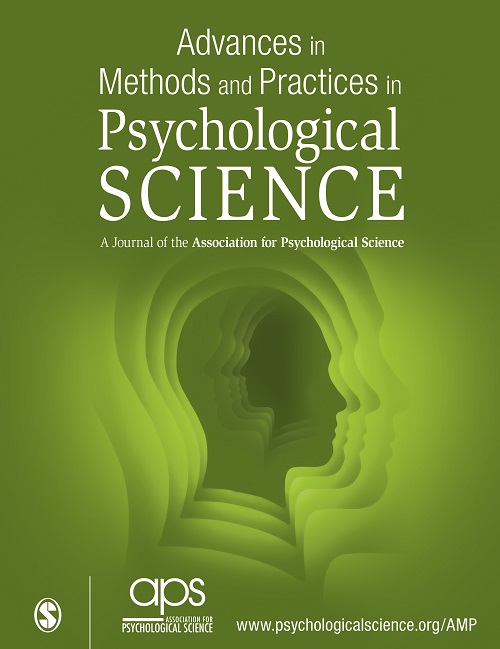The Causal Cookbook: Recipes for Propensity Scores, G-Computation, and Doubly Robust Standardization
IF 15.6
1区 心理学
Q1 PSYCHOLOGY
Advances in Methods and Practices in Psychological Science
Pub Date : 2024-01-01
DOI:10.1177/25152459241236149
引用次数: 0
Abstract
Recent developments in the causal-inference literature have renewed psychologists’ interest in how to improve causal conclusions based on observational data. A lot of the recent writing has focused on concerns of causal identification (under which conditions is it, in principle, possible to recover causal effects?); in this primer, we turn to causal estimation (how do researchers actually turn the data into an effect estimate?) and modern approaches to it that are commonly used in epidemiology. First, we explain how causal estimands can be defined rigorously with the help of the potential-outcomes framework, and we highlight four crucial assumptions necessary for causal inference to succeed (exchangeability, positivity, consistency, and noninterference). Next, we present three types of approaches to causal estimation and compare their strengths and weaknesses: propensity-score methods (in which the independent variable is modeled as a function of controls), g-computation methods (in which the dependent variable is modeled as a function of both controls and the independent variable), and doubly robust estimators (which combine models for both independent and dependent variables). A companion R Notebook is available at github.com/ArthurChatton/CausalCookbook. We hope that this nontechnical introduction not only helps psychologists and other social scientists expand their causal toolbox but also facilitates communication across disciplinary boundaries when it comes to causal inference, a research goal common to all fields of research.因果食谱:倾向评分、G 计算和双稳健标准化食谱
因果推理文献的最新进展再次激发了心理学家对如何改进基于观察数据的因果结论的兴趣。最近的许多文章都集中在对因果识别的关注上(原则上,在哪些条件下可以恢复因果效应?);在这篇入门文章中,我们将转向因果估计(研究人员如何将数据转化为效应估计?首先,我们解释了如何在潜在结果框架的帮助下严格定义因果估计值,并强调了因果推断成功所必需的四个关键假设(可交换性、正向性、一致性和非干扰性)。接下来,我们介绍了三种因果估计方法,并比较了它们的优缺点:倾向分数法(其中自变量被建模为控制因素的函数)、g 计算法(其中因变量被建模为控制因素和自变量的函数)以及双重稳健估计法(将自变量和因变量的模型结合起来)。配套的 R Notebook 可在 github.com/ArthurChatton/CausalCookbook 上下载。我们希望这本非技术性的介绍不仅能帮助心理学家和其他社会科学家扩展他们的因果工具箱,还能在因果推断方面促进跨学科交流,这是所有研究领域的共同研究目标。
本文章由计算机程序翻译,如有差异,请以英文原文为准。
求助全文
约1分钟内获得全文
求助全文
来源期刊
CiteScore
21.20
自引率
0.70%
发文量
16
期刊介绍:
In 2021, Advances in Methods and Practices in Psychological Science will undergo a transition to become an open access journal. This journal focuses on publishing innovative developments in research methods, practices, and conduct within the field of psychological science. It embraces a wide range of areas and topics and encourages the integration of methodological and analytical questions.
The aim of AMPPS is to bring the latest methodological advances to researchers from various disciplines, even those who are not methodological experts. Therefore, the journal seeks submissions that are accessible to readers with different research interests and that represent the diverse research trends within the field of psychological science.
The types of content that AMPPS welcomes include articles that communicate advancements in methods, practices, and metascience, as well as empirical scientific best practices. Additionally, tutorials, commentaries, and simulation studies on new techniques and research tools are encouraged. The journal also aims to publish papers that bring advances from specialized subfields to a broader audience. Lastly, AMPPS accepts Registered Replication Reports, which focus on replicating important findings from previously published studies.
Overall, the transition of Advances in Methods and Practices in Psychological Science to an open access journal aims to increase accessibility and promote the dissemination of new developments in research methods and practices within the field of psychological science.

 求助内容:
求助内容: 应助结果提醒方式:
应助结果提醒方式:


